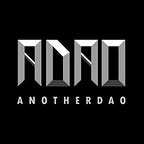What are the many categories of cryptocurrencies, and how do they operate?
Read our simple guide to learn everything you need to know. Most people automatically think of Bitcoin when asked about crypto assets. Although this cryptocurrency has the largest market capitalization in the world, the varieties and quantities of crypto assets available hardly even scratch the surface.
There is no standard definition of a crypto asset. Additionally, even if two digital currencies may belong to the same category, their use cases are frequently very dissimilar. To offer you a clear picture of how diverse the market for crypto assets is, we take a deep dive into the subject here.
How do cryptocurrencies operate?
After discussing the various categories of crypto assets, let’s examine the topic of “tokenomics,” which refers to the production and distribution of crypto assets.
Certain cryptocurrency assets have a predetermined supply. As its upper limit of 21 million is being gradually released between now and 2140, Bitcoin is a wonderful example of this. Other well-known coins on the crypto-asset market, however, do not have any hard caps, which allows for the potential for an infinity of tokens to circulate. As it typically makes it much difficult for these coins to appreciate in value, this may not always turn out to be an appealing crypto-asset investment prospect.
The use of blockchain technology determines the issuance of various crypto assets. Some networks use a consensus process known as “proof-of-work,” which means that fresh crypto assets are only made available after miners solve challenging mathematical challenges. Others, like “proof-of-stake,” depend on validators who have a financial stake in making sure the blockchain functions properly. Each time they add a new block, these validators are rewarded with cryptocurrency.
Cryptocurrency assets are occasionally only created in reaction to demand. For instance, only after someone deposits $1 that is kept in reserve are USDT (Tether) stablecoins created. When the crypto asset is sold, these tokens can then be removed from circulation.
Since there are currently more than 7,800 crypto assets available to customers, it’s critical to do your research on a project before committing your hard-earned money to it. Additionally, crypto-asset regulation is a potential future development that could wind up making things even more complicated.
What category do crypto assets fall under?
How crypto assets should be categorized is one of the most contentious topics in the current conversation. Because some projects’ coins and tokens genuinely come under the category of securities, the US Securities and Exchange Commission (SEC) has in the past imposed severe fines on those projects.
Beyond this, though, it is obvious that when governments and central banks catch up with this technology, regulations on crypto assets will inevitably be tightened.
In order to prevent the use of digital currencies for money laundering and the financing of terrorism, pressure is mounting on crypto-asset exchanges to guarantee that they do “Know Your Customer” checks before allowing customers to make transactions.
With the Internal Revenue Service (IRS) and Her Majesty’s Revenue and Customs (HMRC) stepping up efforts to ensure that cryptocurrency aficionados pay capital gains if they sell their coins for a profit, tax is also shaping up to be one of the major challenges of the decade.
What does the future of cryptocurrency assets hold?
In the upcoming years, it is very likely that new varieties of cryptocurrencies will appear. Just consider how DeFi suddenly appeared on the market in 2020, sparking a wave of governance tokens.
What’s most fascinating at the moment is how this decade appears to be the one in which widespread adoption is actually accomplished. PayPal is getting ready to support cryptocurrency transactions with millions of merchants. China has outlawed Bitcoin but is introducing its own digital currency to its people.
💥Follow us:
🔖 Website: https://anotherdao-exchange.web.app/
🔖 Telegram: https://t.me/AnotherDAO
🔖 Discord: https://discord.gg/NEPHnx793F
🔖 Medium: https://anotherdao.medium.com/
🔖 Facebook: https://www.facebook.com/anotherdao/
🔖 Twitter: https://twitter.com/Another_DAO
🔖Gitbook: https://anotherswap.gitbook.io/another-swap/
🔖Reddit: https://www.reddit.com/user/AnotherDAO_finance22/posts/
